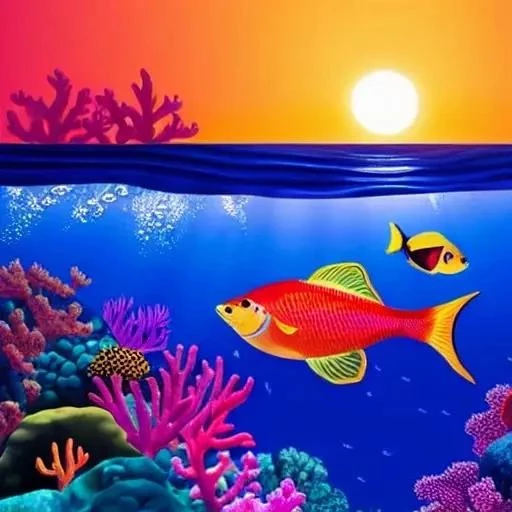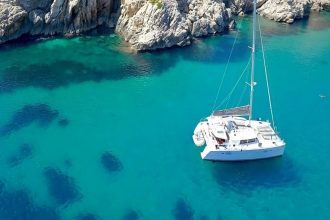Imagine a world bathed in an ethereal blue, where vibrant corals pulse with life, exotic fish dart through sun-dappled reefs, and the only sound is the rhythmic whisper of your own breath. This isn’t a fantasy from a science fiction novel; it’s the profoundly accessible reality of scuba diving. Far more than just a recreational pursuit, scuba diving represents an extraordinary gateway to exploring the planet’s last true frontier, an aquatic realm teeming with unparalleled beauty and serenity. For those yearning to transcend the mundane, to experience a connection with nature that few land-bound activities can rival, the call of the deep is an irresistible siren song promising adventure and profound personal discovery.
At its core, scuba diving, an acronym for Self-Contained Underwater Breathing Apparatus, empowers individuals to become temporary residents of the subaquatic world. By strapping on an air tank and donning specialized gear, divers gain the incredible ability to breathe freely beneath the waves, navigating ocean currents with a grace that feels utterly natural. This technology has democratized underwater exploration, transforming it from a niche scientific endeavor into a globally cherished activity, inviting millions to witness the ocean’s majestic splendor firsthand. With each descending breath, a new perspective unfolds, revealing intricate ecosystems and breathtaking vistas that remain hidden to the surface world.
| Aspect | Description |
|---|---|
| Core Meaning | SCUBA stands for Self-Contained Underwater Breathing Apparatus, enabling independent underwater breathing. |
| Primary Goal | To explore and interact with marine environments, shipwrecks, and underwater geological formations. |
| Key Benefits | Physical fitness, stress reduction, mindfulness, unique travel experiences, fostering environmental stewardship, global community engagement. |
| Essential Equipment | Mask, snorkel, fins, Buoyancy Control Device (BCD), regulator, air tank, wetsuit/drysuit, dive computer. |
| Training & Certification | Globally recognized certification courses (e.g., PADI, SSI) are mandatory, teaching safety protocols, equipment handling, and underwater skills. |
| Environmental Impact | Promotes marine conservation awareness and responsible interaction with delicate ecosystems; |
| Official Reference | Professional Association of Diving Instructors (PADI) |
The allure of scuba diving extends far beyond mere sightseeing; it offers a uniquely meditative experience. Submerging beneath the surface, the cacophony of the terrestrial world fades, replaced by a tranquil silence that encourages introspection and mindfulness. Divers often describe a profound sense of peace, a feeling of weightlessness akin to flying, as they glide effortlessly alongside schools of shimmering fish or observe a majestic sea turtle navigating its ancient path. This immersive encounter with nature is incredibly effective at reducing stress, promoting mental clarity, and fostering a deep appreciation for the planet’s biodiversity, making it a powerful antidote to modern life’s relentless pace;
Technological advancements have made scuba diving remarkably accessible and safer than ever before. Modern equipment, engineered for comfort and reliability, combined with rigorous training standards set by organizations like PADI and SSI, ensures that new divers are well-prepared for their underwater adventures. From the initial open water certification to advanced specialties like wreck diving or underwater photography, there’s a continuous journey of learning and discovery available. This progression not only hones skills but also deepens understanding of marine science and conservation, transforming enthusiasts into passionate advocates for ocean health.
Looking ahead, the future of scuba diving is inextricably linked with marine conservation. As global awareness of climate change and ocean pollution intensifies, divers are uniquely positioned to act as frontline observers and ambassadors for the underwater world. By integrating insights from firsthand experiences, divers contribute invaluable data to scientific research, participate in reef restoration projects, and educate others on sustainable practices. This commitment to stewardship ensures that the wonders observed today will remain for generations to come, allowing future adventurers to also embark on this transformative journey beneath the waves. The global community of divers, bound by a shared passion, continues to expand, charting new territories both literally and metaphorically, ensuring that the spirit of exploration remains vibrant and forward-looking.
In essence, scuba diving is more than just a sport; it’s a philosophy, a lifestyle, and a profound connection to the living blue heart of our planet. It promises not just incredible sights but also unparalleled personal growth, fostering courage, serenity, and an enduring respect for the natural world. So, are you ready to answer the ocean’s call? To trade the familiar horizon for an infinite azure, to discover secrets untold, and to embark on an adventure that will undoubtedly redefine your very understanding of exploration? The underwater world awaits, promising riches far beyond the material, inviting you to dive deeper and, in doing so, live richer.






